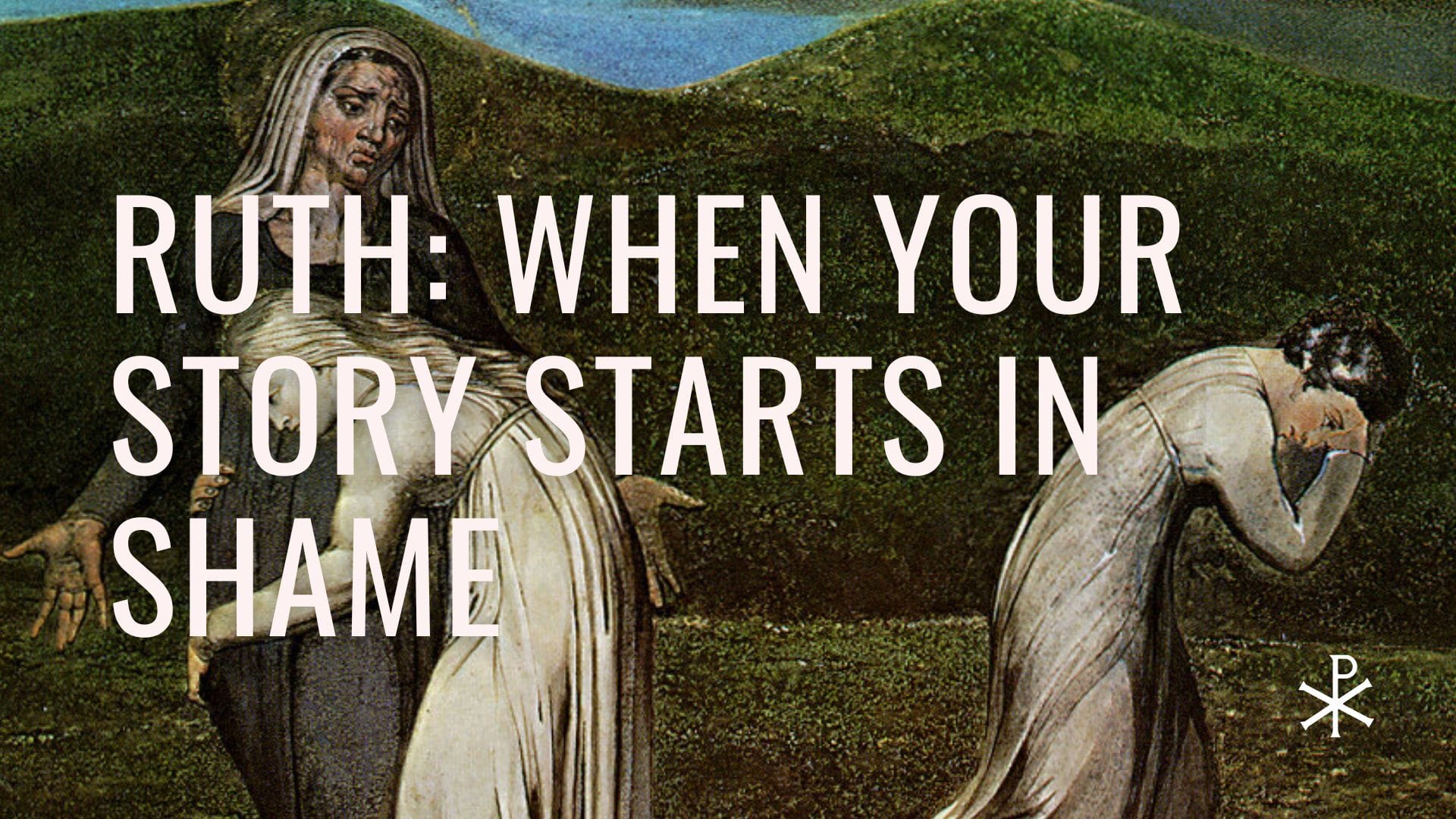Redeemed Failures, Day 3: Ruth — When Your Story Starts in Shame
Discover how Ruth’s story—rooted in loss, shame, and outsider status—became a stunning display of God’s grace as He grafted her into the royal lineage of Christ.

Ruth 1–4; Matthew 1:5
Ruth was a Moabite. And the Moabites weren’t just outsiders; they were a people born in shame.
The origin of Moab traces back to Lot and his daughters, shortly after the destruction of Sodom. Believing the world had ended, the daughters intoxicated their father and slept with him, hoping to preserve their family line (Genesis 19:30–38). The child born of that act was Moab. His descendants became a people marked by scandal and idolatry, and largely known for their seduction of Israelite men and their worship of false gods. In Deuteronomy 23:3, the law declared that no Moabite could enter the assembly of the Lord “even to the tenth generation.”
By every human measure, Ruth was permanently disqualified. Her story began with a "No Entry" sign.
When God Chooses the Unchosen
When we first meet Ruth, she's not just a Moabite; she's a childless widow, one the most vulnerable persons imaginable in the ancient world. Her husband is dead, along with his brother and father. Her mother-in-law Naomi, a Hebrew, is returning to Bethlehem, bitter and empty-handed.
Ruth could have returned to her people and their gods. Instead, she declares: "Your people shall be my people, and your God my God" (Ruth 1:16).
This wasn't just loyalty to Naomi. This was a woman the law said could never belong, choosing to cling to the God of Israel and His mercy. And remarkably, He welcomed her with open arms.
Love That Sees the Invisible
Ruth's transformation unfolds amid ordinary survival. She gleans in barley fields, gathering leftovers like any poor immigrant. But God sees her faithfulness in the shadows. He moves Boaz, an older man of considerable character and standing, to notice this foreign widow and show her extraordinary kindness.
When Boaz provides protection and provision, we glimpse God's heart for the outsider. Boaz doesn't just help Ruth; he redeems her completely, taking her as his wife and restoring what seemed lost forever. He gives her, and her mother-in-law, a restored future and a hope, one beyond their wildest imagination.
Their son Obed would father Jesse, who would father David, from whose line would come Jesus. The woman who couldn't enter God's assembly became an ancestor of the One who would open the door for all nations!
Grace That Rewrites Genealogies
When Matthew records Jesus’s genealogy, he includes Ruth by name, a rare honor for any woman in antiquity, and an especially stunning act of grace for a Moabite once barred from God’s people. The Moabite woman, once excluded by law from God's people, is forever included and inscribed in the bloodline of the Messiah.
God didn't just tolerate Ruth despite her background. He deliberately chose her because of His character. Her inclusion wasn't an exception to His love; it was a demonstration of it. The God who would later say, "I will call those who were not my people 'my people'" (Romans 9:25) was already proving His heart through a widowed gleaner in Bethlehem.
The God Who Delights in Outsiders
Ruth's story reveals something essential: God doesn't merely welcome outsiders; He seeks them out. He doesn't reluctantly include the excluded; He delights in their redemption. The very genealogy of His Son declares that no background is too shameful for His transforming grace.
Where Your Story Finds Hope
Some of us carry shame we didn't choose, maybe family scandals, cultural rejection, or simply being the wrong kind of person in others' eyes. Ruth's story whispers hope: the God who grafted a Moabite woman into the line of Christ is the same God who calls you beloved today.
Your background doesn't disqualify you from His purposes. Instead, it positions you as a trophy of His grace. In God's economy, the most unlikely candidates often become the clearest, brightest demonstrations of His love (c.f. 1 Corinthians 1:26-30).
The outsider becomes the insider. The excluded becomes essential. The Moabite becomes the great-grandmother of kings.
This is the God who doesn't just redeem individuals. He redeems entire family lines, turning stories that begin in shame into testimonies of spectacular grace.
Feel on the outside? Come home. You're welcome in God's house.
Enjoy all 31 devotionals in the Redeemed Failures series here —stories of grace, second chances, and the God who still restores.
